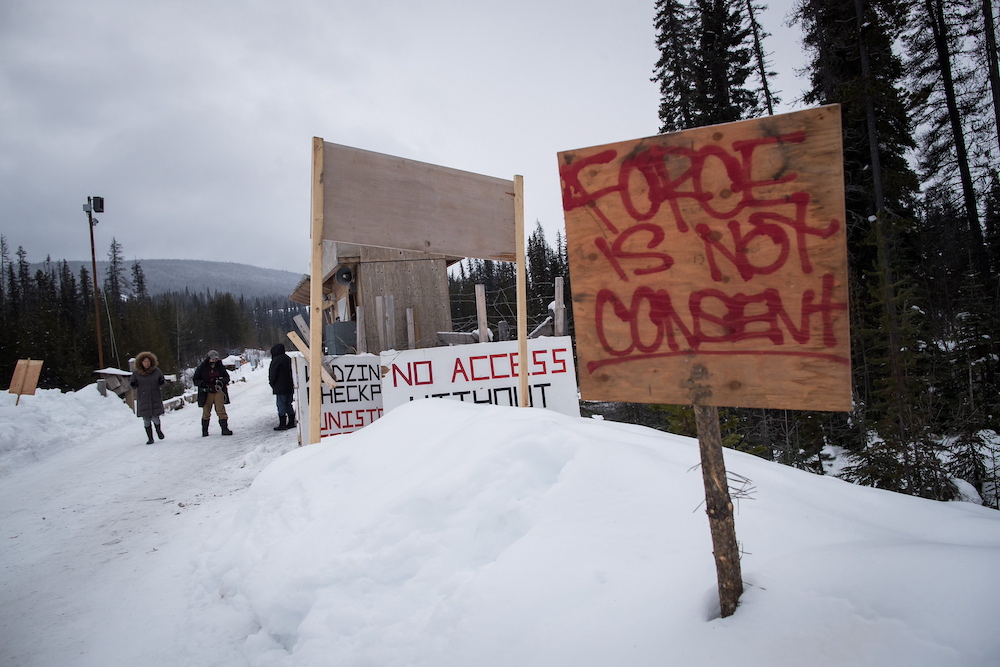Today, after waiting for years, the federal government tabled Bill C-15, the United Nations Declaration on the Rights of Indigenous Peoples. Prime Minister Justin Trudeau has been promising such legislation for years, and we saw the failure in the Senate of Romeo Saganash’s private members Bill C-262 last June. It must be noted this was not Trudeau’s bill, and he has not done anything to fulfill his promise until now.
The biggest question that I think Canadians need to ask is whether the new law will change the lives of Indigenous peoples in this country for the better.
Will the acceptance of UNDRIP into Canadian law help resolve the many issues and barriers facing Indigenous peoples?
Will it envision an improved world for Indigenous people and Canadians?
Justice Minister David Lametti did a quick round of talks (not consultations) with select First Nations. In B.C., there was one phone call for 2.5 hours with Lametti’s staff. There were around 70 Chiefs, leaders or community people on the call to respond to the bare-bones draft bill they had circulated. Of the 70 or so people on the call, approximately 15 actually spoke to the draft bill. We made it clear that our participation was no consultation. I think our most important contributions were in relation to our experience related to the non-implementation of B.C.’s Declaration on the Rights of Indigenous Peoples Act, its lack of mechanisms and political inertia to do what the act requires.
As I expected, Bill C-15 mandates that the laws of Canada be consistent with the declaration and gives the government a long three years to table an action plan in parliament. These elements were in the failed bill C-262 and B.C.’s DRIPA.
Bill C-15 is a bit surprising to me, however, for a couple of things it contains.
What was interesting and surprising to me was found in “Section 4: Purposes of the Act.” It affirms the declaration as a universal international human rights instrument with application in Canadian law. To me, this means that regardless of any action Canada may take with aligning laws, we can argue UNDRIP in court and get it implemented through the court system.
For example, if Canada and First Nations cannot agree on free, prior and informed consent regarding developments in their territory, a First Nation could argue the UNDRIP Article 32(2), which requires the FPIC prior to the approval of any project affecting their lands and resources. This could create a new mechanism for the implementation of UNDRIP.
The second thing I found very interesting is that the action plan must include measures to address injustices, combat prejudice and eliminate all forms of violence and discrimination, including systemic discrimination against Indigenous peoples.
What screamed at me is the noticeable lack of the word racism. Systemic racism. We have had Trudeau, Minister Bill Blair and RCMP Commissioner Brenda Lucki all recognizing racism exist in all institutions including the justice system. Why the lack of the term racism?
Racism is the belief that personality, behaviour and morals can be traced back to race, and the belief that one race is superior to another power. That you are attributing qualities to another person based solely on their race.
Systemic discrimination seems needlessly broad and does not acknowledge the mistreatment and disregard of Indigenous peoples is motivated by racism. We have to deal with racism as the core reason for injustices in the system. We cannot ignore racism.
Addressing injustices and discrimination in the bill is a step forward and one I find encouraging. But I am very disappointed that the term racism is not part of that critical conversation.
With all work with Indigenous peoples, proper processes must be put in place to get First Nations free, prior and informed consent before legislation or administrative measures are taken that may affect Indigenous peoples, as made clear in UNDRIP.
You cannot just do a set of quick conversations, called at the last minute but apologizing that time is of the essence and so this cannot be done properly. Working with 633 First Nations is quite a task, and processes must be put in place on how First Nations want to work with the government on the action plan, changes to laws and other measures including injustices.
There has to be political willingness to get an action plan done, work on amending laws or enacting new laws, and not just put it off or put in little effort like has happened in B.C. This political willingness must not only be at the ministerial level, but the deputy and assistant ministers and their whole bureaucracy, or implementation of UNDRIP won’t happen. There has to be a new mindset throughout government and a sense of urgency that things have got to change in order to save the lives of First Nations people in realms such as justice and health.
The proposed bill allows the federal government three years to put in place an action plan. That is far too long and needs to be reduced. If it has to be three years, there should be provision for an interim action plan for the first year to be done within 120 days, and then another plan for the next two within the last three months of the first year.
Priorities can be set with Indigenous people on what should be done in the first, second and third year. Systemic changes are needed now, not in three years. It should specifically state that work can go on under Bill C-15 even if an action plan is not in place.
We have to do away with this fear regarding free, prior and informed consent, that it will mean a veto and no developments will go ahead. This is always the first question that news reporters and politicians raise when they hear about UNDRIP being implemented.
There are many articles in UNDRIP that support First Nations ownership and management of their territories, resources and water, preserving their relationship to the land, and preserving heritage sites.
I think people need to be thinking differently, working towards sustainable business, reducing greenhouse gases and living differently so that we have a world to leave our children and grandchildren. We all have to start thinking differently.
Bill C-15 is not perfect and could use some work, but it does send signals that things could change within Canada as UNDRIP becomes a part of the daily lives of First Nations people across this country. If, that is, the government can work closely with First Nations and adopt processes that everyone can live with.
Bill C-15 could look very different if Minister Lametti, in the spirit of Article 19, took the time to “consult and co-operate in good faith with the Indigenous people of Canada to obtain their free, prior and informed consent before adopting the UNDRIP Act.” ![]()
Read more: Indigenous, Rights + Justice, Politics

















Tyee Commenting Guidelines
Comments that violate guidelines risk being deleted, and violations may result in a temporary or permanent user ban. Maintain the spirit of good conversation to stay in the discussion.
*Please note The Tyee is not a forum for spreading misinformation about COVID-19, denying its existence or minimizing its risk to public health.
Do:
Do not: